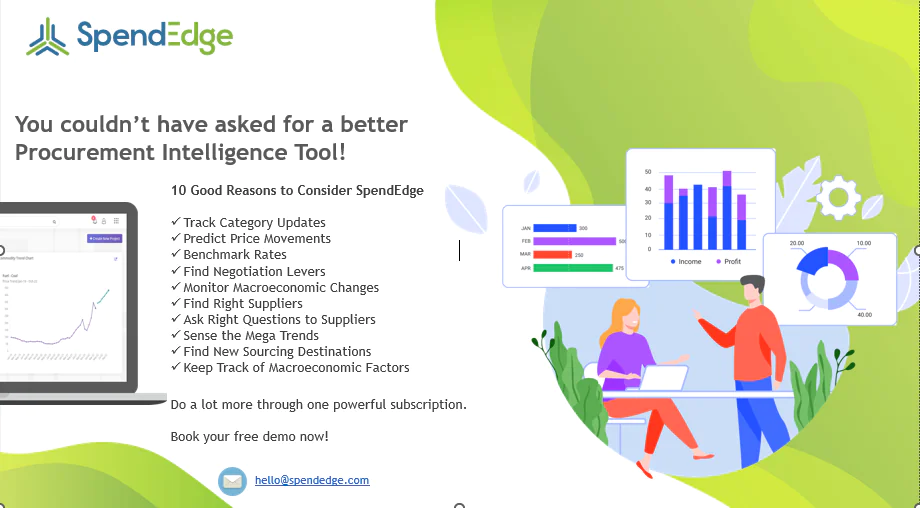Key Takeaways
- Prioritizing supply chain performance is crucial for business success, enabling seamless coordination across departments to optimize operations and drive growth.
- Enhancing supply chain visibility through improved communication and collaboration helps businesses identify and address bottlenecks efficiently, leading to smoother operations.
- Automation streamlines the supply chain process, reducing errors and freeing up human capital for more strategic, value-added activities that drive competitiveness.
- Strong supplier relationships foster transparency, collaboration, and innovation, ultimately leading to cost savings, resilience, and a sustainable, ethical supply chain ecosystem.
Introduction to Shortlisting in Supply Chain
Supply chain performance is crucial for business success due to its multifaceted impact across departments and operations. It involves integrating procurement, manufacturing, logistics, and sales functions to ensure seamless coordination and communication. Tracking Key Performance Indicators (KPIs) such as inventory turnover, on-time delivery, and lead time provides valuable insights into operational efficiency and areas for improvement.
By optimizing supply chain processes, businesses can achieve various objectives, including reducing costs through better inventory management, improving customer satisfaction by ensuring timely deliveries, and enhancing overall financial performance through increased revenue and profitability. Additionally, implementing lean principles such as Just-in-Time (JIT) inventory management and continuous improvement methodologies enables organizations to minimize waste, improve productivity, and respond effectively to changing market demands. Thus, prioritizing supply chain performance is essential for maintaining competitiveness and achieving sustainable growth in today’s dynamic business environment.
Understanding Supply Chain Performance Management
Supply Chain Performance Management (SCPM) is a crucial aspect of operational strategy that focuses on improving the efficiency and effectiveness of the supply chain to achieve better outputs and customer satisfaction. SCPM revolves around systematic evaluation and improvement, leveraging various metrics to ensure optimal performance.
Key Components of Supply Chain Performance
To fully appreciate the breadth and depth of supply chain performance management, it’s essential to dissect its core components. These metrics not only gauge efficiency but also guide strategic adjustments to enhance overall functionality.
Delivery Performance
Timely delivery of products is a cornerstone of customer satisfaction and a critical measure of supply chain success. This metric assesses the punctuality of deliveries to customers, considering factors like:
- Speed: How fast goods move through the supply chain from suppliers to end customers.
- Reliability: Consistency in meeting delivery times, which affects customer trust and business reputation.
- Flexibility: The ability to adapt delivery schedules to unexpected changes or customer requests.
Efficient delivery metrics contribute significantly to measuring supply chain performance, as they directly impact client retention and profitability.
Quality Metrics
Maintaining high standards of product quality is imperative for sustaining brand reputation and customer loyalty. Quality metrics in supply chain management involve:
- Conformance to Standards: Ensuring products meet predefined specifications and quality benchmarks.
- Defect Rates: Monitoring the incidence of defective or non-compliant products throughout the supply chain.
- Return Rates: Tracking the frequency of product returns due to quality issues, which can reveal insights into production effectiveness and customer satisfaction.
These measures of supply chain performance are vital for identifying areas that need corrective actions, thus preventing the costly repercussions of quality failures.
Cost-related Metrics
Cost optimization is fundamental in supply chain performance management. By minimizing expenses, companies can maximize profitability while maintaining competitive pricing. Key cost-related metrics include:
- Cost of Goods Sold (COGS): Evaluating the direct costs tied to production, including materials and labor.
- Supply Chain Operating Expense: The overheads involved in operating the supply chain, such as warehousing, logistics, and employee salaries.
- Inventory Carrying Costs: The costs associated with storing unsold goods, which can affect overall financial health if not properly managed.
Strategies for enhancing supply chain efficiency
Enhancing the prominence of the supply chain
Enhancing supply chain visibility is essential for modern businesses to remain competitive and resilient. Improved visibility enables better communication among stakeholders, enhancing collaboration and relationships. With a clearer understanding of product flow, stakeholders can coordinate effectively, leading to smoother operations and increased customer satisfaction. Moreover, heightened visibility facilitates the prompt identification of bottlenecks and inefficiencies, allowing for targeted optimization and cost reduction strategies. By prioritizing visibility, businesses can make informed decisions and drive continuous improvement across the supply chain, positioning themselves for long-term success in today’s dynamic marketplace.
Streamline the supply chain process through automation
Automation serves as the backbone of efficient supply chain management, enabling companies to streamline operations, reduce errors, and improve overall performance. By automating repetitive tasks and leveraging technological solutions, businesses can optimize resources, enhance visibility, and meet the evolving demands of the market. This strategic shift frees up human capital for more value-added activities, ultimately driving efficiency and competitiveness in the business.
Fostering strong relationships with key suppliers
Building strong supplier relationships is essential for optimizing procurement and logistics processes. Effective communication and collaboration foster transparency and enable joint goal-setting, while robust conflict resolution mechanisms ensure issues are promptly addressed. Enhanced supply chain visibility allows for proactive risk management, while streamlined procurement processes drive efficiency and cost savings. Additionally, fostering innovation through close collaboration with suppliers drives continuous improvement and maintains a competitive edge in the marketplace. Overall, investing in supplier partnerships yields numerous benefits, including improved efficiency, reduced costs, and greater resilience in the supply chain.
The Role of Shortlisting in Enhancing Supply Chain Efficiency
Shortlisting is a strategic process in supply chain management that significantly diverges from traditional procurement methods. It involves selectively narrowing down suppliers or products to a manageable number based on stringent, pre-defined criteria. This methodology emphasizes quality over quantity, aiming to streamline operations and optimize supply chain performance.
What is Shortlisting?
In the context of supply chain management, shortlisting is about making informed, strategic decisions to choose suppliers who not only meet but exceed expectations in terms of delivery, cost-efficiency, and quality standards. This process typically involves:
- Detailed Assessment: Evaluating suppliers against a comprehensive set of criteria that cover various aspects of performance, such as sustainability practices, technology integration, financial stability, and compliance with industry standards.
- Performance Metrics: Utilizing key performance indicators (KPIs) that are aligned with the company’s strategic objectives. These may include metrics related to delivery times, quality rates, and cost effectiveness.
- Stakeholder Engagement: Involving key stakeholders in the selection process to ensure that the chosen suppliers can meet cross-functional needs.
By focusing on a select group of suppliers, companies can cultivate closer relationships, tailor their supply base to their specific needs, and ultimately drive greater value across their supply chain.
Benefits of Shortlisting Suppliers
Shortlisting suppliers can transform the supply chain in several fundamental ways:
Enhanced Supplier Relationships
By dealing with fewer suppliers, companies can:
- Develop Deeper Partnerships: More focused attention on each supplier allows for the development of closer, more collaborative relationships, which can lead to better service and more customized product offerings.
- Increase Collaboration: Enhanced relationships facilitate better communication and cooperation, which are crucial for continuous improvement and innovation.
- Strengthen Loyalty: Strong relationships built on mutual trust and frequent interaction can lead to longer-term contracts and a commitment from suppliers to push boundaries and strive for excellence.
Negotiation Leverage
Concentrating business on fewer suppliers provides several negotiation advantages:
- Better Terms: With higher volume commitments, companies can negotiate more favorable terms, such as bulk discounts, improved payment terms, and prioritized service.
- Strategic Alignment: Closer ties allow for alignment of business strategies, which can lead to shared goals and objectives that benefit both parties.
- Risk Mitigation: Stronger relationships lead to a better understanding of each party’s operational capabilities and limitations, allowing for proactive risk management.
Quality and Reliability
Shortlisting the best suppliers ensures that a company receives:
- Consistent Quality: Reduced variability in product quality as suppliers are closely monitored and more integrated into the company’s quality assurance processes.
- Reliable Supply: Enhanced reliability in supply continuity and compliance with delivery schedules, reducing the risk of disruptions.
- Innovative Solutions: Top-tier suppliers are often leaders in innovation, offering new solutions that can provide a competitive edge.
Strategic Implementation of Shortlisting
Implementing a shortlisting strategy requires:
- Comprehensive Supplier Evaluation: Using a well-defined supplier evaluation framework that includes both quantitative and qualitative measures.
- Regular Performance Reviews: Establishing ongoing assessment processes to ensure suppliers continue to meet required standards and adapt to changing business needs.
- Dynamic Supplier Base Management: Being willing to revise the list of shortlisted suppliers based on performance, market changes, and evolving company strategy.
Through these detailed processes, shortlisting becomes a powerful tool in supply chain performance management, enhancing not just the efficiency but also the robustness and responsiveness of the supply chain to market or internal changes.
How SpendEdge can help businesses in improving their supply chain performance?
Strategically formulating solutions to improve supply chain management –
Our experts begin by thoroughly exploring the client’s supply chain methods, challenges, and objectives through interviews and analysis sessions. They assess the current technology, explore market options, and choose alternatives that closely match the client’s needs. Crafting a technology integration plan, they prepare for customization and system integration. They contact vendors, carefully review proposals, and create an implementation strategy that includes training and stakeholder engagement tactics. They tackle resistance to change by highlighting the benefits and set up success metrics for continuous improvement.
Creating a tailored market information framework to enhance supply chain management –
Our specialists pinpoint industry best practices applicable to clients’ supply chain operations and seamlessly integrate them into processes, benchmarking against efficiency standards. They meticulously scrutinize competitors’ strategies, evaluate potential solutions, and ensure alignment with strategic goals. Identifying areas ripe for enhancement, they integrate insights gleaned from competitor analysis into decision-making processes. Furthermore, they evaluate supply chain procedures, involving stakeholders to identify inefficiencies and prioritize optimization efforts. Leveraging data analytics and process mapping techniques, they collaboratively develop and implement solutions. They also establish mechanisms for continuous monitoring and actively seek feedback to identify emerging opportunities for improvement.
Offering guidance on cultivating robust supplier relationships –
Our advisors offer valuable insights and recommendations for enhancing supply chain performance and cultivating strong relationships with crucial suppliers. Their strategies and insights can aid businesses in establishing clear policies and codes of conduct, engaging in supplier collaboration, conducting thorough auditing and monitoring, ensuring traceability and transparency, providing capacity building and training, and collaborating with stakeholders. These practices not only bolster reputation and brand value but also mitigate risks, confer a competitive advantage, and contribute to a more sustainable and ethical supply chain ecosystem.
Success Story: How we helped a leading Consumer Packaged Goods (CPG) company in optimizing their supply chain performance.
Our client is a prominent global CPG company headquartered in the US, specializing in manufacturing and marketing of food and beverage products.
The client faced challenges in optimizing its supply chain performance. They encountered inefficiencies in their procurement processes, which led to increased costs and risks.
Our experts at SpendEdge conducted a comprehensive analysis of the client’s procurement processes, sourcing strategies, and risk management protocols, identifying areas for enhancement. Collaborating closely with key stakeholders, they assessed specific needs and challenges, evaluating industry-leading practices and competitors’ strategies to refine processes and drive improvement. A tailored roadmap was crafted, emphasizing automation, technology implementation, and supplier relationship management to revolutionize the client’s procurement function.
Our solutions enabled the client to significantly enhance their supply chain performance, effectively navigate challenges, capitalize on opportunities, and achieve sustainable growth in the dynamic market landscape.
Embracing Shortlisting for Future-Ready Supply Chain Management
In the intricate landscape of modern commerce, shortlisting emerges as a vital strategy within supply chain performance management. By adopting this focused approach, businesses can significantly streamline operations, enhance supplier relationships, and ensure a steady supply of high-quality products. The benefits extend beyond mere operational efficiencies, fostering stronger partnerships, greater negotiating power, and improved reliability across the supply chain.
As we look to the future, the role of shortlisting in optimizing supply chain performance is poised to grow even more critical. Companies that master this strategy will not only adapt more effectively to the ever-changing market demands but will also position themselves at the forefront of industry innovation and competitiveness. Therefore, it’s essential for businesses to continuously refine their shortlisting practices, leveraging the latest technologies and insights to drive superior performance and achieve long-term success.
By integrating shortlisting effectively into their supply chain performance management systems, companies can unlock new levels of efficiency and productivity, setting a benchmark for excellence in their respective industries. The journey to a more streamlined and effective supply chain starts with the strategic decision to shortlist, reinforcing the foundation for robust growth and sustainable success.

Ready to elevate your supply chain strategies? Visit SpendEdge today to explore how our insights and solutions can transform your supply chain performance management, driving unmatched efficiency and success.




